‘My Son Matters’ exhibit confronts stereotypes facing young black men
-
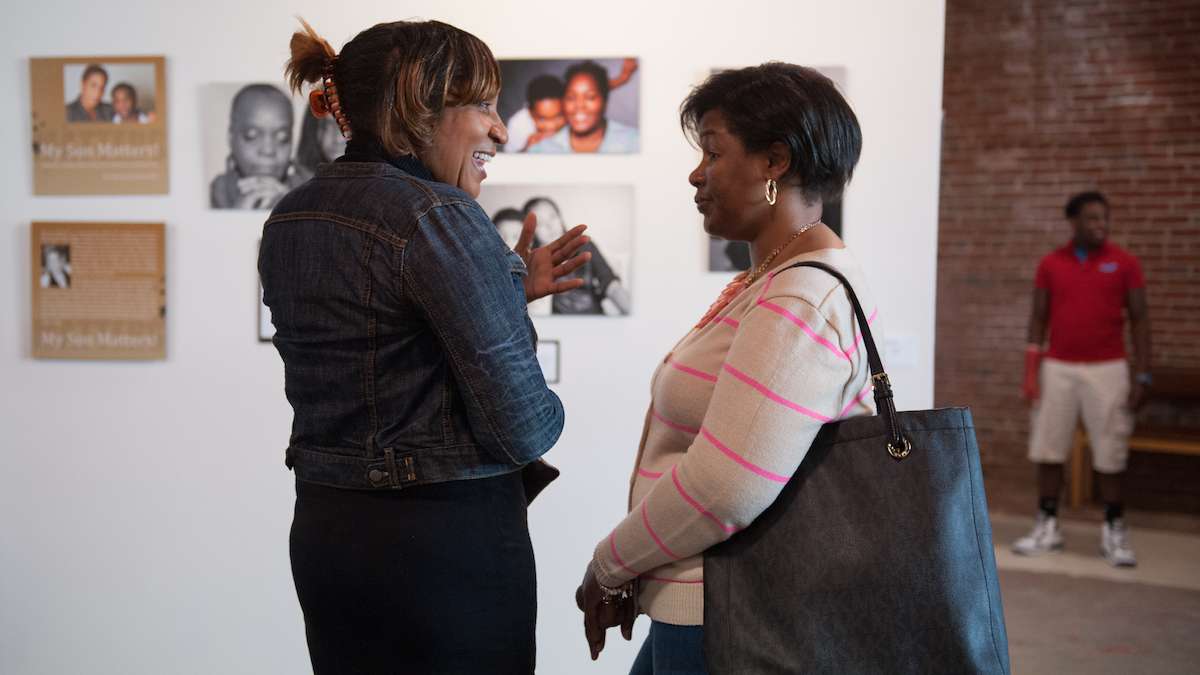
-

-

-

-
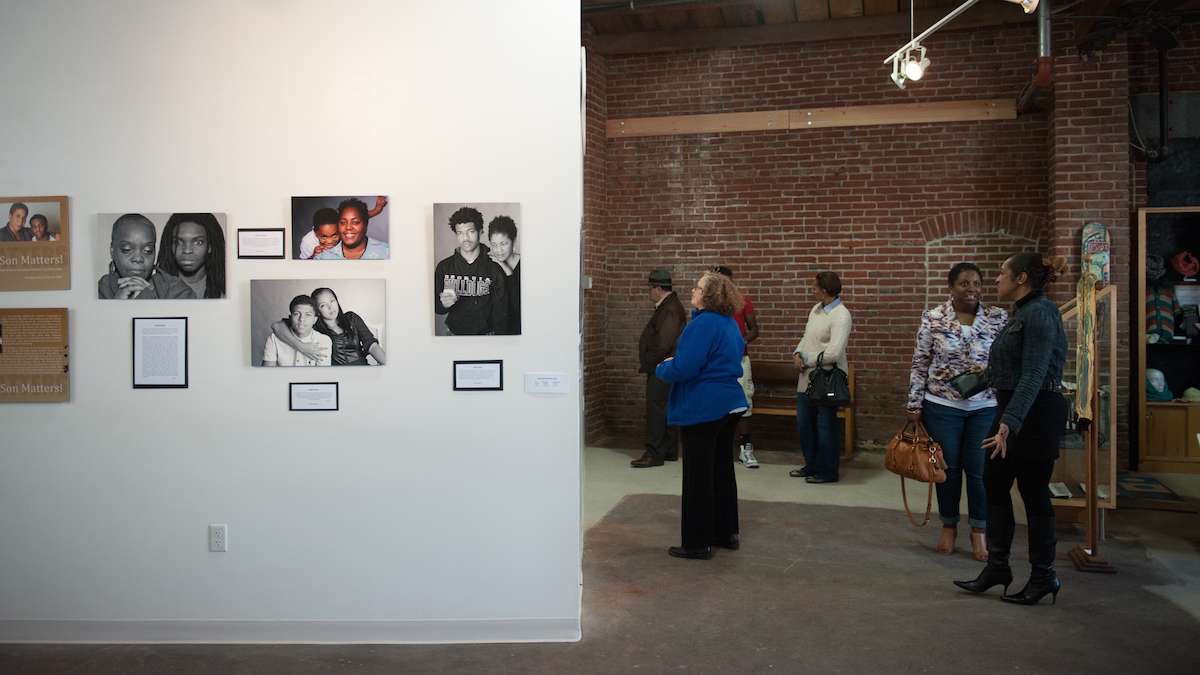
Check out our story on 'My Son Matters' at Mt. Airy Art Garage. (Tracie Van Auken/for NewsWorks)
-
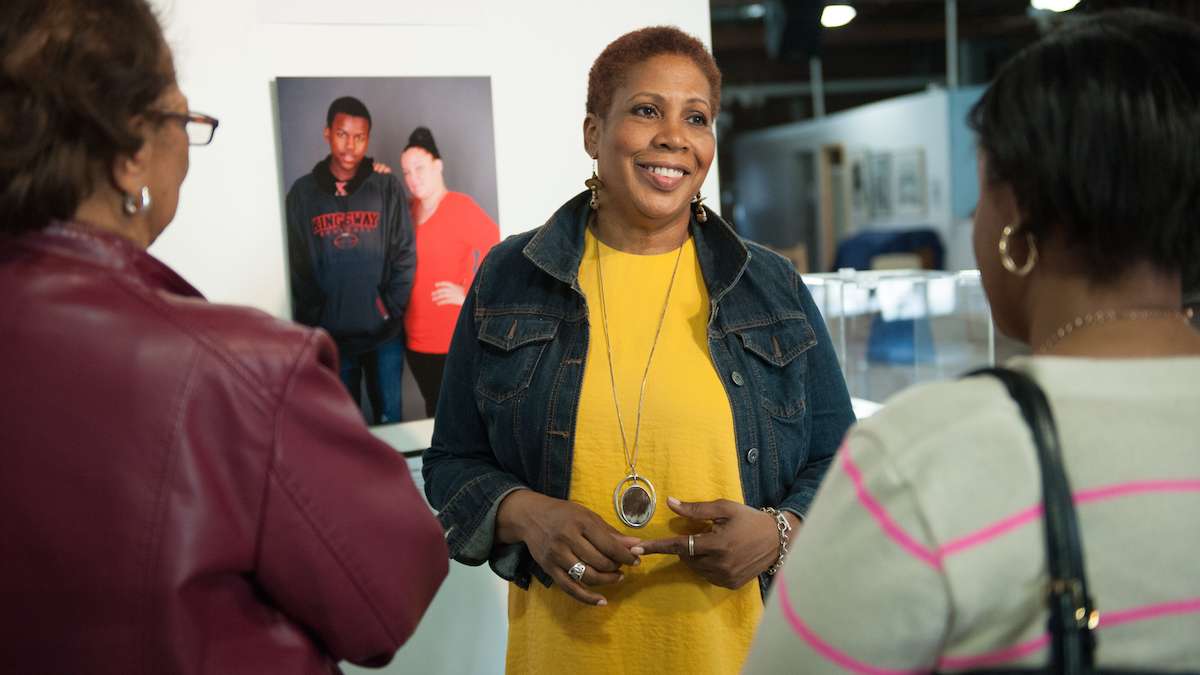
-
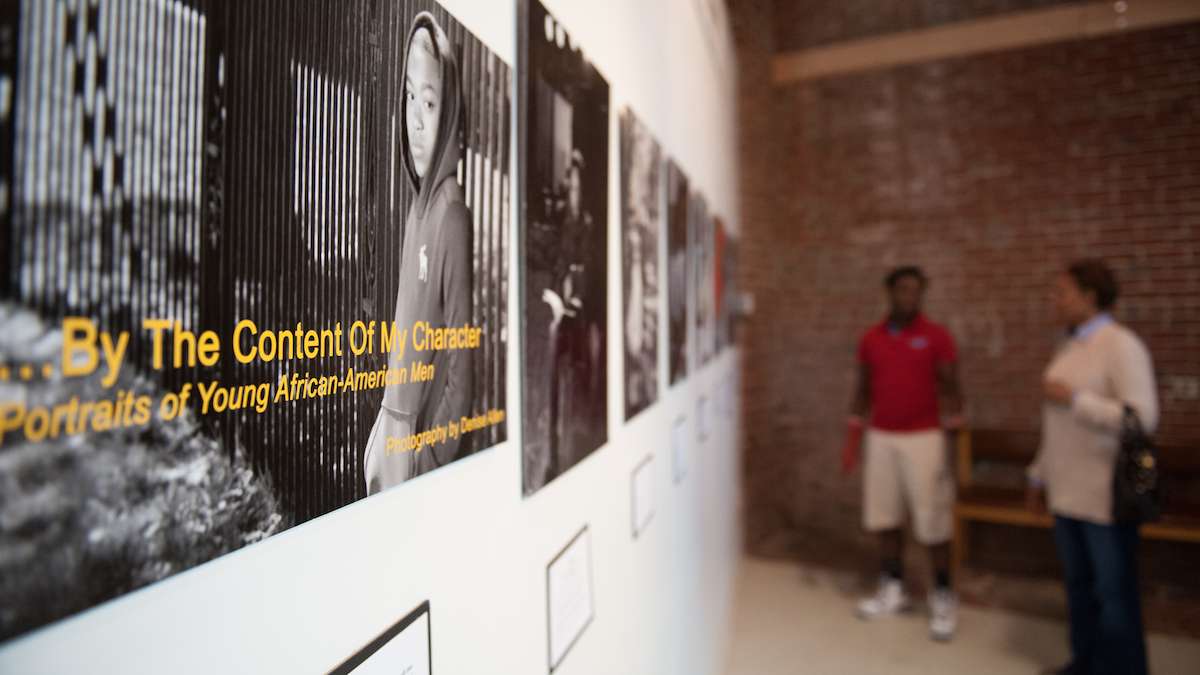
-
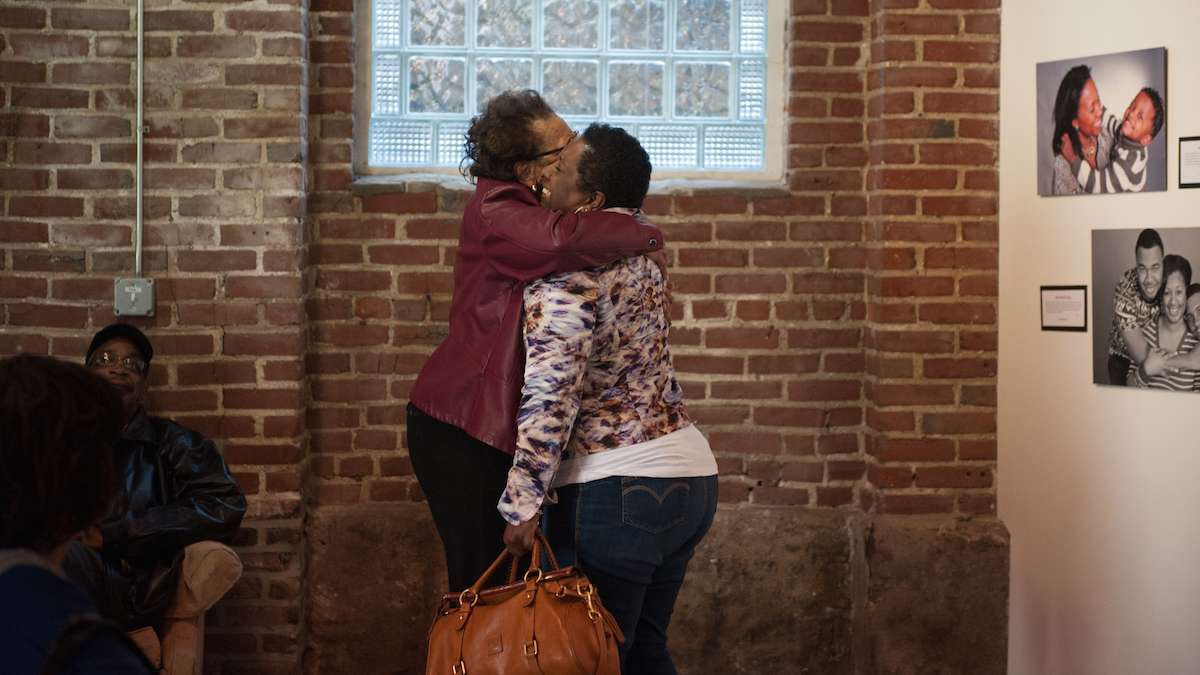
-
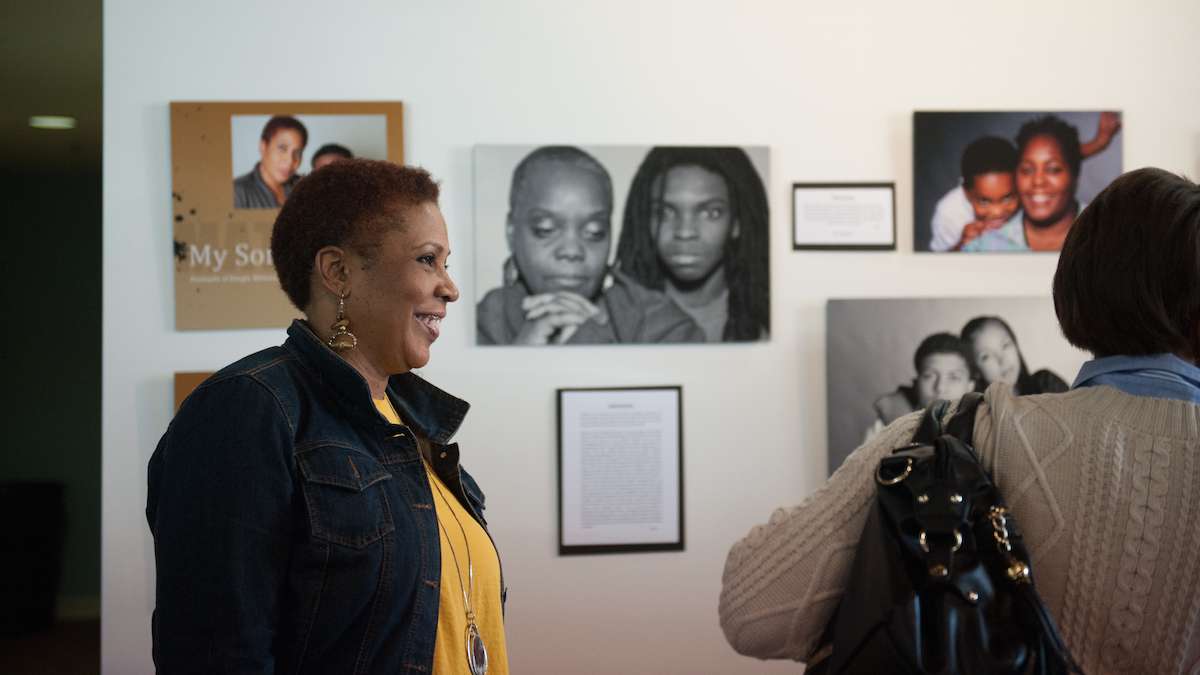
-

-

Asked about the social ills she wants to spotlight with her new collection of portraits featuring African-American single mothers and their sons, photographer Denise Allen lands on a moment we’ve seen play out in the media all too often in recent months and years.
“When someone loses a child, for a moment, the world goes silent and someone shoves a microphone in her face,” she told NewsWorks at a special reception for the mothers and sons featured in the current Mt. Airy Art Garage show, “My Son Matters.”
But why, Allen demands, do we have to wait for the deaths of these young men before we pay attention to the fatal discrimination they can face?
‘A loving light’
Funded in part by a grant from the Leeway Foundation, Allen’s portrait series shines “a loving light on the young men whose existence is often stigmatized.”
The Jenkintown resident’s current series was sparked by the lack of an indictment in the shooting death of Michael Brown last year.
“My Son Matters” is on the walls alongside “By The Content of My Character,” an older series by Allen, featuring African-American boys and teens in the context of their diverse personal interests, from sports to theater. That exhibit was inspired by the 2012 killing of Trayvon Martin. The photos are accompanied by personal statements from the boys about their hobbies, goals, and responses to Martin’s death.
Dubois was in 7th grade at Springside Chestnut Hill Academy when Allen took his picture for the series. The picture shows him playing his violin and reads, “I got a little scared because I am African American and I always wear hoodies because they are warm and fuzzy.”
Identities, not stereotypes
Kashta Davis, an 18-year-old senior at Germantown Academy, was 15 when Allen took his picture for the “Character” series. A swimmer and photographer, he’s shown in a sports hoodie with his goggles around his neck, in front of racks of colorful swim gear.
“It’s cool to be part of something that’s aiming to have an impact in the community,” he said of participating in the show. He likes the way the pictures “give identities to young African-American men,” who are otherwise often “grouped” and stereotyped in negative ways.
MAAG co-founder and president Linda Slodki said that community impact is already evident. She said the gallery has gotten many calls and emails from groups and schools who want to come see the show.
Just before the show opened to the public, MAAG co-founder Arleen Olshan said an elderly African-American neighbor came in to have a look.
“He took a long time observing the show and he just started crying,” Olshan shared. “He said, ‘I’m so worried for my 13-year-old grandson.'”
She hopes the show will “teach people about the environment we all live in, and [help us] deal with our own fear.”
Career woman, mother, grad student
Willow Grove resident Akiva Harris, one of the mothers featured in the show along with her two sons, 18-year-old Shamar and 14-year-old Shawn, said she first connected with Allen in the aftermath of the announcement that no indictment was made for Ferguson police officer Darren Wilson.
“I was a lot of things,” she said of her rage, fear and dismay, and found out about Allen’s project through a social media connection.
Just because she’s a black woman, Harris said, “nine of out 10 people” will have a negative concept of her when they see her walking down the street. They wouldn’t guess anything about her real life: a mother of two with a full-time job at a mortgage servicing company, who has also been working on a master’s degree in clinical counseling from Chestnut Hill College since 2013. She’ll graduate this year, and hopes to work with African-American children who are caught in troubling family cycles.
A ‘heartbreaking discussion’
Harris hopes people who come to see the show will learn that it truly is challenging being a black person in America. Her son Shamar will attend Neumann University next year, to study criminal justice and psychology. But any time he gets behind the wheel, Harris said, he keeps his driver’s license in the glove compartment, so that when he’s stopped by police, he can cause the least alarm while reaching for his license and registration.
“This is the heartbreaking discussion black parents are having with their teenage kids,” Allen writes in a statement for the show. “Telling them that being black in America means they must watch how they dress, how they move, how they behave. It means being deferential to authority and suffering indignities in silence rather than face the risks of speaking out.”
“These are our sons,” Harris said. “We’re trying to raise them on the right path.”
The night wrapped up as Allen sat in a circle with the other mothers in her show. The group talked about their experiences.
She said reactions to the show might be “a double-edged sword.” On the one hand, African-American mothers know the problems that exist, but they don’t know the answers. But there are many other people who have yet to open their eyes to the problems at all.
“We are doing it by ourselves, but we are not alone in the situation,” said portrait subject Jathiya Lash, who appears with her son Jaleel, of what the exhibit made her realize about her challenges as a black single mom.
“It’s a chance to speak through motherhood to all mothers,” regardless of race or status, participant Vashti DuBois added.
“My Son Matters” is on display at Mt. Airy Art Garage through May 31.
WHYY is your source for fact-based, in-depth journalism and information. As a nonprofit organization, we rely on financial support from readers like you. Please give today.




